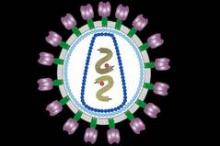Not every day does an elected politician turn public health hero, but that happened when New York Governor Andrew Cuomo on June 29 announced an ambitious plan to identify all New York state residents who are infected with HIV, and start them on effective treatment. The goal is that by 2020 the number of HIV patients in New York will finally start to drop, and the HIV epidemic will end, at least in New York.
The program was announced in a press release and by Mr. Cuomo before the start of the annual New York City Gay Pride March on June 29. The three-point program is dubbed Bending the Curve, an epidemiologic and public health concept of HIV that has kicked around the infectious diseases community for several years. The idea is that with today’s highly active antiretroviral therapy – with high efficacy for controlling viral load, low toxicity, and a low daily pill count – the amount of HIV circulating in infected patients can be maintained at undetectable levels, rendering the patient noninfectious.
I heard the National Institutes of Health’s Dr. Anthony Fauci, longtime leader of federally funded U.S. efforts to control HIV, present this concept at a meeting a year ago, but at the time, this great idea was just that, a concept not yet being attempted in real life.
New York’s move makes it the first U.S. jurisdiction to adopt early, aggressive treatment as a public health mandate, serving as a tryout for a highly sensible hypothesis.
Speaking to the New York Times on June 26, when word of the New York initiative first came out, Dr. Fauci commented that it would serve as a national model, and that "if you aggressively seek out people who are infected, [and] get them into voluntary testing, care, and treatment, the mathematical model shows a sharp deflection in the curve of people ultimately getting the infection. Ultimately, you can end the pandemic."
The New York program aims to do this with an aggressive program of testing and treatment paid for by the state, which has worked out a deal with a trio of drug companies to buy state-of-the-art HIV drugs at a reduced price. The program also calls for more extensive promotion of and state payment for pre-exposure prophylaxis treatment. The governor’s statement did not put a price tag on what this will cost New York, but it emphasized that substantial cost savings will result from cutting new HIV infections.
As the Times’ coverage highlighted, the program is no slam dunk. It’s a great idea that will surely encounter logistic issues. But it received praise and support from leaders of several constituency groups, a key factor that should help it succeed. For example, the statement announcing the program quoted Benjamin Bashein, acting executive director of the AIDS Community Research Initiative of America, as saying, "ACRIA applauds Governor Cuomo for his bold plan to end AIDS in New York state. We now have the knowledge and the means to dramatically reduce new infections and promote optimal health for those with HIV. Governor Cuomo’s leadership will make New York a model for ending AIDS across the country and around the globe."
On Twitter @mitchelzoler


